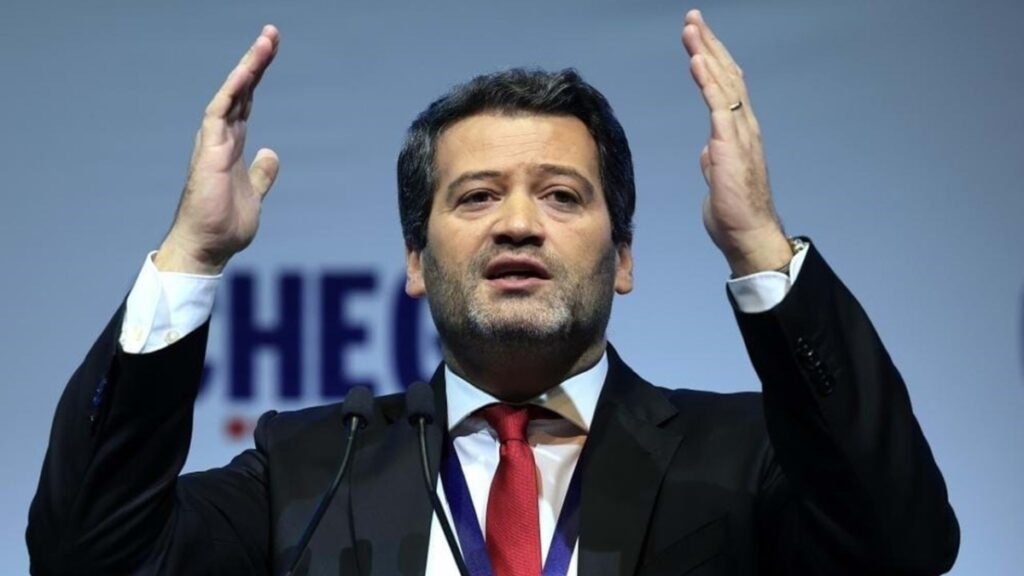After the summer break, the leader of the far-right party Chega André Ventura made a strong statement in parliament. He linked Portugal’s increase in violent crimes to the Roma community. His statements have generated controversy some are supporting him, while others have criticized his opinions on crime and ethnicity.
Read More About: WHO Guidelines And Portugal Health Measures For RSV And Mpox Viruses
Ventura Blames Roma Community For Crimes

Ventura pointed to a recent triple homicide in Penha de França, Lisbon, as an example of the problem. He used the incident to accuse the government of not doing enough to stop violent crimes. Ventura believes the Roma community is responsible for much of this crime and often goes unpunished.
Ventura said:
I would like to express my deep regret that the Roma community continues to go unpunished in Portugal. It’s one case after another, while the country falls asleep and turns away, without realising that there is a real problem that needs to be solved
He urged the government to take stronger actions against crime and stressed the need for immediate action. For Ventura, the only solution is to take stronger action against criminals.
He added:
What does the government intend to do to so that our streets don’t become an unnecessary far-west, with crimes in broad daylight, with blood dripping down our streets? It’s time to get tough on crime – and that’s what we expect this government to do
He warned that Portugal’s streets are becoming dangerous and even compared the situation to the Far West where crimes happen in broad daylight.
Ventura’s comments are not new. He has often blamed the Roma community for what he sees as their involvement in crime. However, many critics argue that his views are dangerous and divisive.
Ventura’s focus on a specific ethnic group carries the risk of increasing social tension. His critics argue that crime should be treated as an individual issue rather than one based on ethnicity.
Prime Minister Luís Montenegro responded quickly to Ventura’s statements. While he acknowledged that crime is a concern but he rejected the idea of linking crime to any specific ethnic group.
Montenegro responded:
The government doesn’t look at who commits crimes by community or ethnic group. We do not want impunity for anyone
He stressed that crime must be tackled through law enforcement without blaming one particular group. The prime minister added that the government’s approach to fighting crime focuses on improving police work, investigations, and the courts.
Montenegro also highlighted the importance of democracy and justice. He explained that Portugal’s courts must remain fair and unbiased and focus on the rule of law.
Crime Statistics And Government Action
Ventura claimed that violent crime in Portugal is growing by about 5%. However, these numbers have not been confirmed by the government. The prime minister did not directly respond to Ventura’s statement about the increase in crime but he assured the public that the government is focused on fighting crime.
Some experts believe the situation is not as alarming as Ventura suggests. Some believe that Ventura is exaggerating the issue to gain political support. Prime Minister Montenegro reassured the public that the government is taking steps to keep the country safe.
Montenegro also explained that the government is working to increase police resources and improve crime investigations. The prime minister made it clear that these measures will apply to everyone and not just a specific community.
Ventura Linking Immigration To Crime
Ventura also spoke about immigration in addition to linking crime to the Roma community. He claimed that Portugal is experiencing an unprecedented wave of immigration which he suggested can also be contributing to rising crime rates.
Montenegro responded that the government had already made changes to immigration policy. One of these changes was ending the expression of interest system which had allowed immigrants to apply for residency in Portugal.

Montenegro said:
We have a team, a mission structure resolving 400,000 pending issues. This doesn’t mean legalising 400,000 immigrants, it means resolving 400,000 pending issues, identifying who the people are and whether they meet the conditions to stay in Portugal
He emphasized that resolving these applications does not mean automatically granting residency to all applicants. The government is working to determine whether these individuals meet the requirements to stay in Portugal legally.
Ventura’s comments suggest that he believes stricter immigration controls are needed. On the other hand, the government and many others believe that the situation should be managed responsibly and ensure that only those who meet the legal requirements are allowed to stay.
